Green Cooperative Transition Learning Seminar Adaptive to Climate Change in Central Java Province
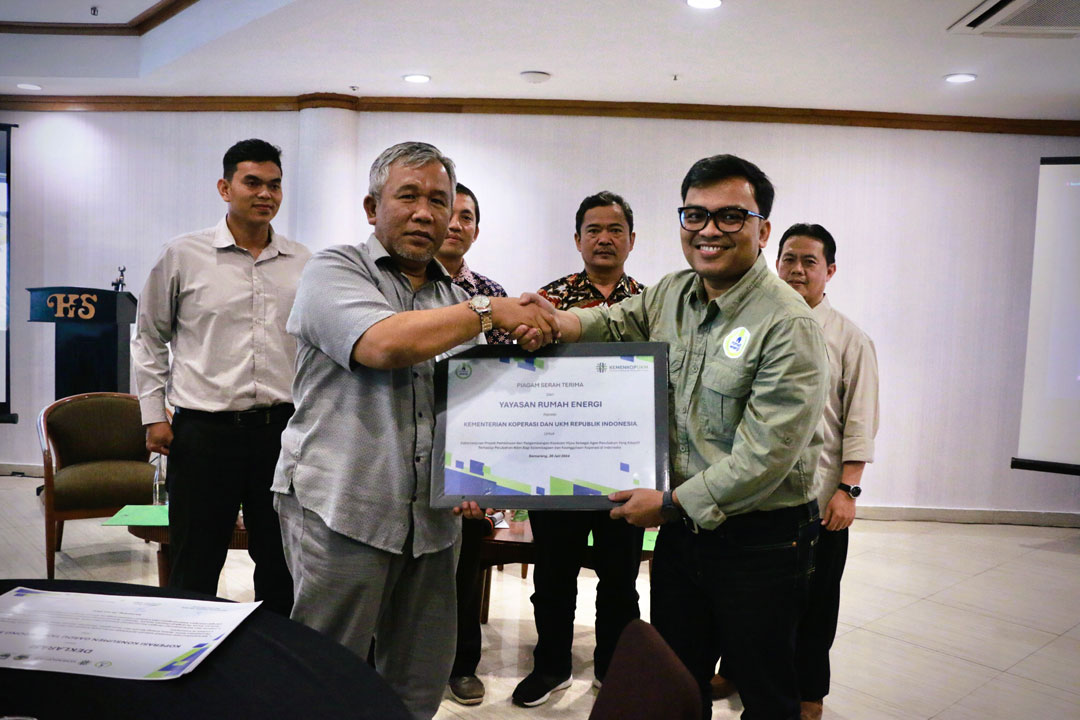
Yayasan Rumah Energi (YRE) has implemented a project with the activity title “Local Cooperatives as Agents of Change in Climate Change Adaptation” or Green Cooperative Adaptation Readiness (GENCAR). This project started from July 2023 to July 2024, which on July 20, 2024, was the last series of GENCAR.
The event consisted of several activities such as discussion and sharing of experiences and knowledge by various cooperatives actively involved in this program. In addition, this activity was also attended by multiple parties interested in the issue of Green Cooperatives, namely from the Central Java Provincial DLHK, Central Java Provincial Bappeda, Ministry of Cooperatives and SMEs, and others.
The seminar activity began with remarks by the Executive Director of the Rumah Energi Foundation, Sumanda Tondang who expressed the main objective of the learning seminar. This activity focuses on realizing empowered community activities in renewable energy and food security. The hope is that through this Green Cooperative program, cooperatives can become case studies, real examples of sustainability practices,” said Sumanda.
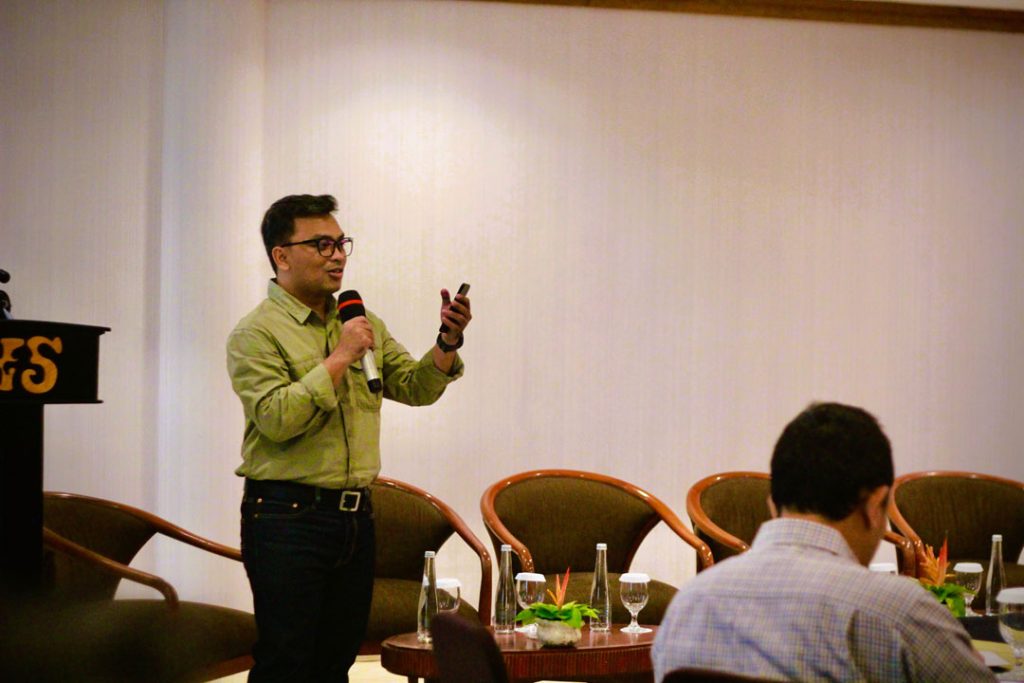
Meanwhile, Deputy for Cooperatives at the Ministry of Cooperatives and SMEs, Ahmad Zabadi explained that what YRE is doing is parallel to what the Ministry is doing. “The BIRU program is one relevant and strategic example if it involves cooperatives because cooperatives involve a very broad range of individuals. For example, horticultural empowerment in Ciwidey is involved through the ministry and the farmers are members who are members of the cooperative. This can collectively consolidate the farmers’ land which can finally be widely collected. This is where the role of cooperatives is very large in collecting, synchronizing, and managing the results of farmers and can also synchronize the right marketing targets for consumers, as well as the selection of the right seeds and fertilizers,” said Ahmad Zabadi
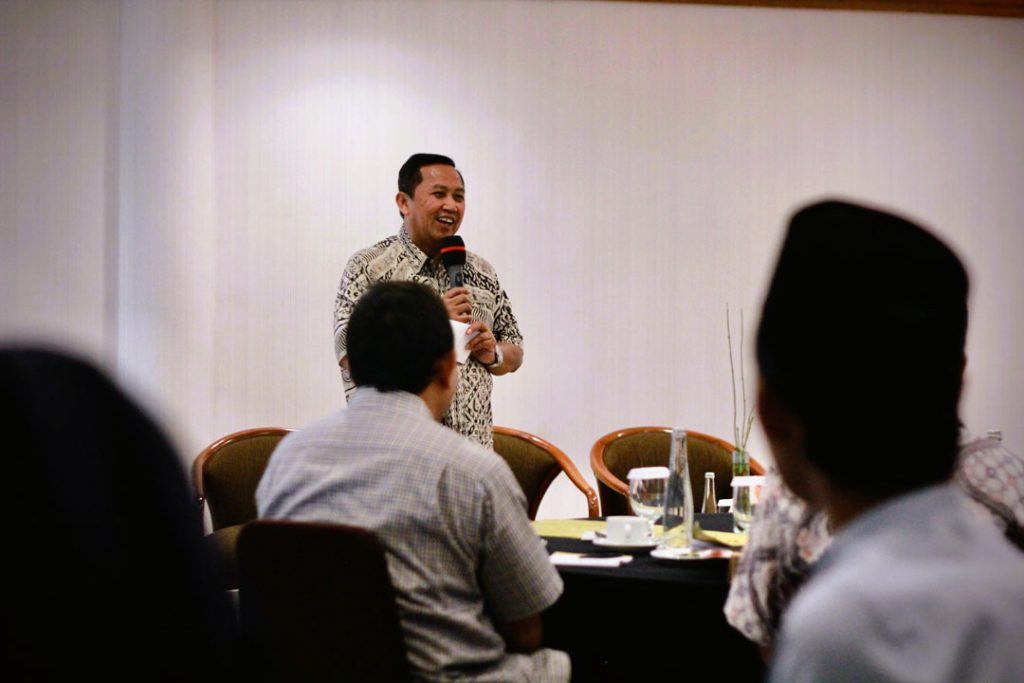
In addition to the Ministry of Cooperatives and SMEs, the Bappeda of Central Java Province represented by Hermawan also conveyed several important points, especially economic developments in Central Java Province. “In Central Java, the green economy program is one of the transformations and has become a program that has been initiated by the Central Java Provincial Government, which aims to improve welfare and social equality in society, while reducing environmental damage, which is in line with the program being implemented by the Rumah Energi Foundation. In addition, in the draft RPJPD, the Central Java Provincial Government has compiled a green economy program section which is in line with the Vision of the Central Java Provincial Government, namely “Central Java Advanced, Prosperous, Cultured, Sustainable as a Supporter of National Food and Industry”. What is of special concern to the Central Java Provincial Government is the issue of the legal umbrella that covers the Green Cooperative program in Indonesia for the future, which is hoped to be advocated to cover these interests sustainably,” explained Hermawan.
The activity was then continued with discussion activities and sharing stories with the title of the discussion “Transition Towards Green Cooperatives Adaptive to Climate Change”. KSPSS Usaha Syariah Bersama (USB) Pati collaborates with third parties, one example is GP Ansor, Margoyoso District, for plastic waste management which is motivated by the large number of street vendors whose plastic waste management is not managed properly.
KK Gardu Tani Gedong Songo was initially formed because of small farmer groups in the Ungaran area, with the main challenge being related to capital problems. When joining the GENCAR project, these benefits can be directly felt by the cooperative that joins the existing waste management organization, namely Rompal. This can build cooperation, especially to improve funding schemes for operations. In addition to waste management, the cooperative is also directly involved in maintaining and managing water resources in the area around the cooperative. Even now, the cooperative continues to help maintain soil and water conditions to carry out agroforestry in the Gedongsongo area.
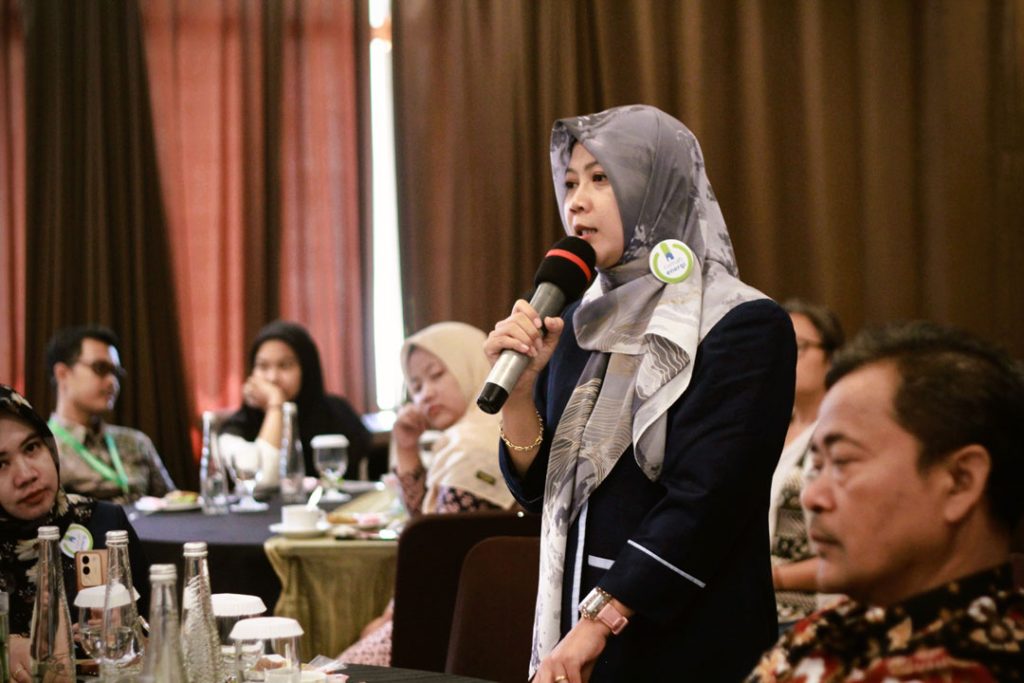
General Manager of KSP Qaryah Thayyibah, Ita Fitriana also shared her good story about the role of cooperatives, saying that “Cooperatives have very strong social capital, according to the number of members which cannot be said to be small, cooperatives can be driving agents for the surrounding environment. Cooperative members who are mostly livestock breeders, who continue to be given capital for livestock breeders in the formation of a biogas ecosystem which is one of the policies being designed by the cooperative,” said Ita.
KSPSS Tebar Boyolali shared experiences about integrated organic farming in the early 90s. Cooperatives can be a strategic forum for people who are active in campaigning for environmental issues which are not only limited to economic rotation from cooperative activities but also instilling ideologies based on green cooperatives. KSPSS Tebar has also held environmental conservation activities by initiating the distribution of plant seeds which will later be planted in their respective places.
Naneth, one of the panelists, said that the GENCAR project can be a blessing for all parties. At a time when competition is getting tighter, cooperatives must combine the sustainability system, how the business community can be maintained, and how we face challenges with parties that have greater capital.
Deputy for Cooperatives, Ministry of Cooperatives and SMEs, Mr. Wisnu Gunadi, said that cooperatives are always at the forefront whenever discussing environmental issues, price stability, food security, and others. According to him, young people are a great hope for improving cooperative programs, and green economy, which must continue to adapt according to developments. Human resources in the cooperative sector must be able to respond to rapid changes; it is necessary to build new ideas on how the next good ideas can be created for the sustainability of cooperative programs not obtained in previous periods.
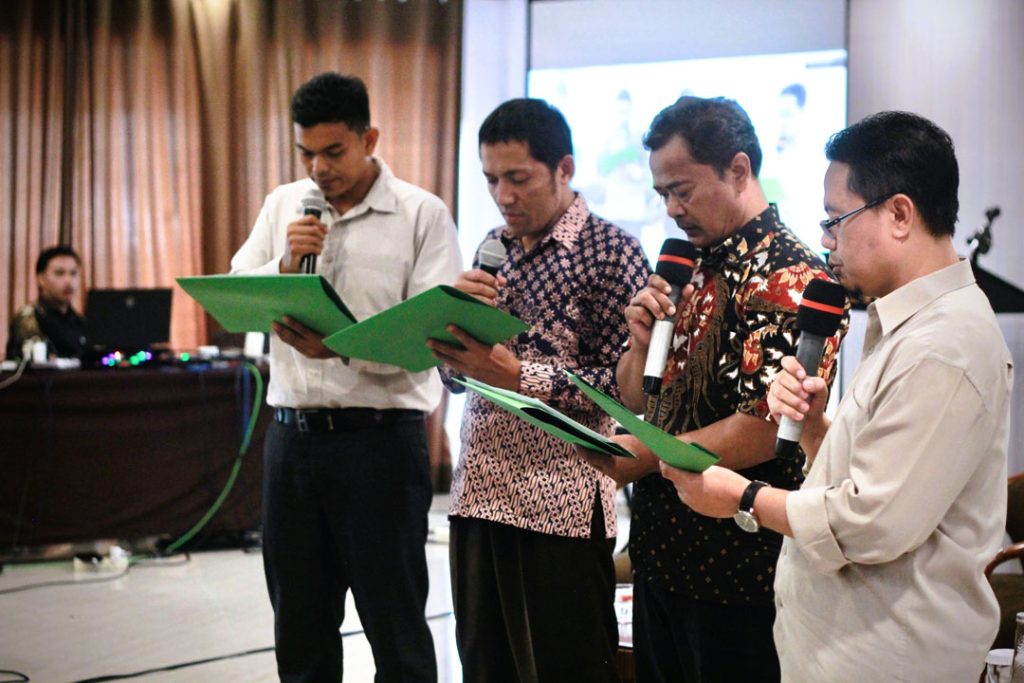
Yohanes Deo, representative of Puskopdit Caraka Utama Lampung, explained that cooperatives in Lampung apply several special parameters in the process of providing loans to their members. One important aspect that is to be considered is the environmental impact of the activities being financed. Cooperatives in this region do not only focus on the financial aspect but are also committed to paying attention to how the activities supported affect the surrounding environment. Furthermore, Yohanes Deo explained that cooperatives in Lampung actively encourage their members to manage waste better, especially livestock waste. By prioritizing effective waste management, cooperatives strive to reduce negative impacts on the environment and support the sustainability of local ecosystems. This initiative is expected to create a balance between economic progress and environmental protection.
Wisnu Gunadi added that the future business landscape will be very dynamic and experience rapid development. In this context, the green economy emerges as a strategic opportunity for cooperatives to expand their business reach beyond their core activities. Although savings and loan cooperatives are usually faced with operational limitations, Wisnu emphasized that cooperatives can still collaborate with third parties. Through this collaboration, cooperatives can explore and run derivative businesses related to the principles of green cooperatives. This approach allows cooperatives to not only fulfill their environmental responsibilities but also gain additional benefits from the rapidly growing green economy sector.
The learning seminar activity ended with the signing and reading of the declaration by the four parties who were the beneficiaries of the GENCAR program.
Written by: Danti Wulan Manunggal & Mohammad Noufal
Edited by: Fauzan Ramadhan

